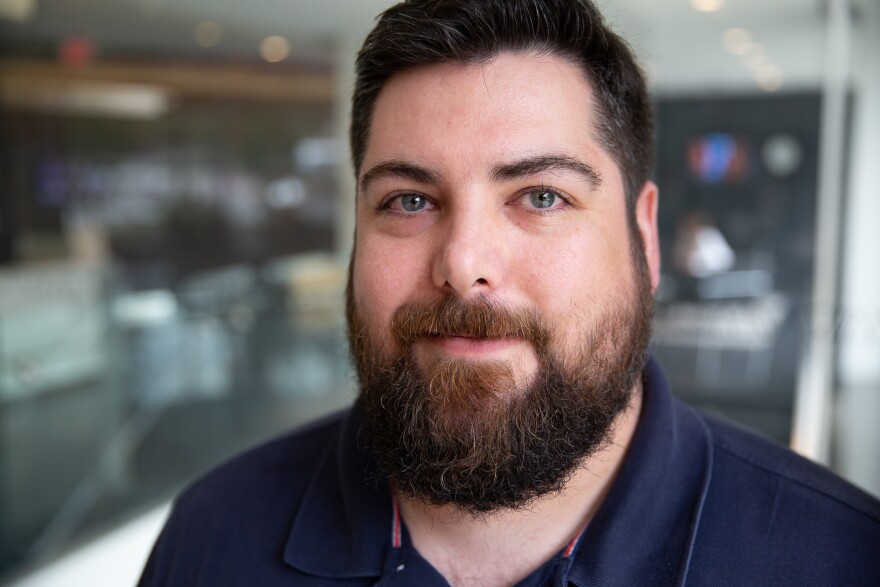KCUR reporter Chris Haxel won a Pulitzer Prize for audio reporting for his work covering American conservatives and gun rights.
Haxel shares the Pulitzer with Lisa Hagen, Graham Smith and Robert Little for No Compromise, an NPR podcast.
“It’s a story about how people can use social media to push their ideology — and how quickly they can change their message,” Haxel said. “The lessons of this podcast aren't just about guns. ... These guys found guns to be a wedge issue that helped them raise money and build a following on Facebook.”
Haxel co-reported the project with Hagen, a reporter at WABE in Atlanta. They knew each other from Guns & America, a national reporting collaborative between ten NPR member stations. But Haxel still hasn’t met Smith and Little in person.
“Our team was put together during the pandemic,” Haxel said. “We just know each other through Zoom and lots of phone calls. We already had plans to someday get together and have a drink, but now it seems like that's going to happen sooner rather than later.”
The Pulitzer for audio reporting is a new prize that was first awarded in 2020. Smith and Little were finalists for their work on another NPR podcast, “White Lies.”
“No Compromise” took nearly two years to report and produce. Hagen reached out to her Guns & America colleagues to ask if they were seeing anything like a Georgia gun group she’d found on Facebook. Haxel quickly identified a similar group in Missouri.
“For the first six to nine months, we didn’t know if we had a podcast. We just knew we were investigating these guys,” Haxel said. “Somewhere along the way, we sort of realized, you know, this is not an eight-minute radio story. This is not a 30- or 60- minute radio special. If we're going to tell the story the right way, it needs to be a podcast.”
Hagen and Haxel continued reporting up until the last episode aired. He said that they’ve gotten positive feedback on the podcast, including from several of the subjects, many of whom thanked the team for treating them fairly.
KCUR’s news director, Lisa Rodriguez, called the podcast revelatory.
“It’s the kind of story that other reporters would have given up on, or other editors may have said, ‘You know what, this is not worth our time. It’s going to take too much to do this,’” she said. “And it is worth the time and effort. I admire Chris and his team so much for not passing on it.”
Haxel, who is based at KCUR, now covers military personnel, veterans and their families for American Homefront, a public media collaboration focused on the military and veterans. Haxel is himself a veteran, which he said has given him a common language with many of the people he’s covered in the last three years.
“Pick any culture that's in America. It has its own language, its own terminology, its own history. As a reporter, whether you're reporting on gun culture or any other culture, I just think it's really helpful to know that history and know that vocabulary,” he said.
For Haxel, though, the biggest takeaway is that good reporting takes time — and resources.
“Good journalism is expensive,” Haxel said. “That's just the nature of the beast when you're trying to get a complicated story.”



